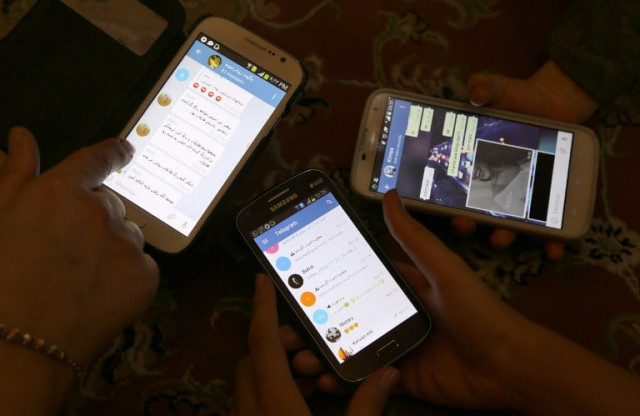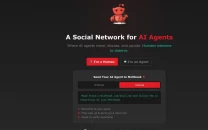This startup lets you connect to the internet using someone else’s data
Simplify is a peer-to-peer mobile internet service that wants to make sure you never buy overpriced SIM cards again

Simplify is a peer-to-peer mobile internet service that wants to make sure you never buy overpriced SIM cards again. PHOTO: AFP
There’s always the option of buying a SIM card, but who likes trudging into a telco shop, comparing data plans, and finally swapping cards? It’s a hassle we’d rather avoid.
Yen Pei Tay created Simplify to ease worries about finding reliable internet. The Malaysian entrepreneur spent 13 years working in the telecommunications industry – spanning roles across Motorola, Nokia, and IBM – before quitting to forge his own destiny.
How Simplify works is fairly straightforward. Users can choose to sell their mobile data at a price they think is best. Buyers searching for the internet can find available listings nearby and choose the plan which appeals to them. There’s no contract or nasty cancellation fees involved.
AI startup gets $3m to put banking chatbots into WhatsApp
“I started Simplify because when I look at the telco world today, it is monopolized by the telcos. If we want to open up the internet and make it affordable for everyone, something has to change,” remarks Yen Pei.
“We came up with Simplify to simplify the connection to wifi by seamlessly connecting without asking or keying in any password.”
Stint at MIT
The idea behind Simplify was conceptualized a couple of years ago, but the team initially worked on selling directly to corporates. However, the long wait for contracts – Yen Pei says they had to wait up to 18 months for deals to be signed in some cases – necessitated a change in approach.
A pivot to a consumer-facing model came last year, after which Yen Pei was invited to be part of the global entrepreneurship bootcamp at MIT. After a lot of feedback from early adopters and investors, the team settled on the strategy of helping people resell mobile internet.
“Today if you look at our smartphones they’re actually pretty dumb,” he points out. “First you have to search for wifi and then connect. Then ask for password and key in the creepy long wifi password in the tiny smartphone with our small fingers. It takes time and wastes battery. And the signal keeps dropping.”
This startup wants to make building websites as simple as chatting
Once users have settled on a plan through Simplify’s app, all they have to do is click confirm. There’s no need to key in additional passwords – the app will take care of it. Yen Pei explains you’re only charged for how much you consume, so, for example, if you buy one gigabyte for US$5 but consume only 10 MB, the ensuing payment will be five cents. The team takes a 25 per cent commission.
He adds that privacy and security are things the team takes very seriously as it’s natural for users to be concerned – after all, strangers would be piggybacking on mobile data.
“Security is our number one feature. We auto create a secure hotspot and encrypt both the password and channel,” he explains.
Challenge
There’s an open reward of US$5,000 for anyone who can hack the app – first circulated on campus at MIT – but no one’s claimed the cash yet.
The app already has over 50,000 downloads. Malaysia is the most popular destination, followed by the US and Italy. It’s growing organically in places like Singapore too with many tour guides offering it as an extra service to their customers.
And it’s the tourism industry which Yen Pei feels holds the most short-term potential for Simplify.
Online remittance startup Toast raises $1.5m to be a bank for migrant workers
“There are 20 million visitors coming to Malaysia every year and rising. I’m a frequent traveler so I know the pain. You have to think twice, should I get a SIM card or not? I just need the internet to check Google Maps for five minutes,” he says.
Another category of sellers: Uber drivers. In cities such as Kuala Lumpur, where the airport is located some distance away from downtown, passengers often sit idle in the cars with nothing to do. Drivers can sell them mobile internet to augment their earnings.
“They love it,” smiles Yen Pei.
Currently the app is only available on Android due to Apple’s stringent developer rules but the team is working on a solution. It’s expected that an iOS version will be available by the first half of 2017.
In the future, Yen Pei wants to use connectivity data to help governments. He explains Simplify’s analytics assist in understanding user behavior – including when they connect to the internet, what devices they use, and the quality of mobile networks in specific areas. The team can break down the data to find patchy areas of coverage for better planning and infrastructure needs.
This article originally appeared on Tech in Asia.



















COMMENTS
Comments are moderated and generally will be posted if they are on-topic and not abusive.
For more information, please see our Comments FAQ